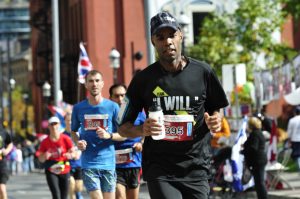
I learned a lot of lessons that stuck with me when I was training for the 2019 Toronto Waterfront Marathon. One in particular stands out: It’s okay to go slow. Because as I reviewed my training plan and saw the 26k training runs (or longer distances) I would have to run, I was panicking. How was I going to run that far? The answer was, of course, that I would have to go at a slower pace — because it wasn’t the race. But I had to learn to be okay with going slow. It was the only way for me to cover the distance.
As the end of the year draws closer, I am thinking more about my life — where I’ve been, where I am, and where I’m still looking to go. Maybe, too, it is because in some areas of my life things are going well, but in others I’m not exactly where I had hoped to be. Specifically with my writing, as there have been a few setbacks that have forced me to delay the release of my next novel. And this has again made me realize that sometimes it is okay to go slow.
Remember What is True
I am a writer. That is true. I know that because every day I write no matter what, usually in the early quiet hours and sometimes in the evening. Writing has always been the thing that grounds me, gives me a sense of purpose in what sometimes feels like a chaotic world … especially on the days that are a struggle.
A struggle, yes, because I constantly get snarled in the comparison trap (even though I know better!). And because, when I’m honest with myself, I’m really not sure how to define success when it comes to my writing. Is it just based on the number of books sold? Is it about proving to my doubters that they were wrong? Is it my commitment to show up every day and write no matter what?
Maybe it’s all those things and more. Or less.
What is true, then, is that even on my best days I’m a little lost in the wilderness. And that’s okay. It’s why, now, I’m okay to go slow so that I can, as Ray Dalio advises, “Think for yourself to decide 1) what you want, 2) what is true, and 3) what you should do to achieve #1 in light of #2 … and do that with humility and open-mindedness so that you can consider the best thinking available to you.” [note]Ray Dalio, Principles, Simon & Schuster, 2017, p. X.[/note]
It’s Okay to Go Slow
The paradox is that there is both urgency and a need to slow down. The urgency is that I’m turning fifty next August, and because tomorrow isn’t guaranteed, I want to make sure I’m doing everything to live intentionally. To make sure that I do what’s in my heart and to not leave anything undone. But there is also, at times, a necessity to slow down and reevaluate. Because reaching the destination is just as important as enjoying journey.
Yes, it’s okay to go slow. As Mahatma Gandhi reminded us, “There is more to life than increasing its speed.”
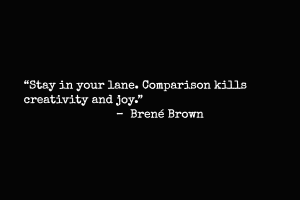 As a writer, it’s hard not to compare myself to others … even when I know I shouldn’t. But I want to be successful and productive. That always has me looking to others to see how they work and if there’s something in their routine and habits that may help me. What if I were like Somerset Maugham, who set a daily requirement of 1,000-1,500 words?[note] Mason Curry, Daily Rituals: How Artists Work, Alfred A. Knopf, New York, 2018, p. 105[/note] What if I could be like Igor Stravinsky and work without a break from 9:00 am to 1:00 pm? [note] Mason Curry, Daily Rituals: How Artists Work, Alfred A. Knopf, New York, 2018, p. 92[/note]
As a writer, it’s hard not to compare myself to others … even when I know I shouldn’t. But I want to be successful and productive. That always has me looking to others to see how they work and if there’s something in their routine and habits that may help me. What if I were like Somerset Maugham, who set a daily requirement of 1,000-1,500 words?[note] Mason Curry, Daily Rituals: How Artists Work, Alfred A. Knopf, New York, 2018, p. 105[/note] What if I could be like Igor Stravinsky and work without a break from 9:00 am to 1:00 pm? [note] Mason Curry, Daily Rituals: How Artists Work, Alfred A. Knopf, New York, 2018, p. 92[/note]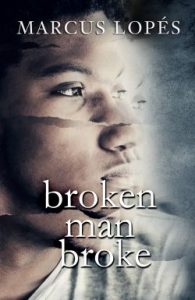
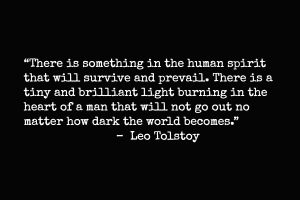 I was in university when my grandmother was rushed to the hospital. She was in her mid-seventies (75 or 76) and had to have her leg amputated due to diabetes. The doctors weren’t convinced she’d make it off the operating table. But she did. I believe partly because of her unwavering faith, partly because she had a strong will to live. I spent time with her every day for the four months of rehab that got her out of the hospital. The dedication, training and encouragement from her rehab team gave her a second chance. While she chose not to walk with a prosthetic leg, she was still an active and outgoing person with a positive attitude. She knew the power of ‘I Will,’ and showed me I could do whatever I set my mind to with will and determination.
I was in university when my grandmother was rushed to the hospital. She was in her mid-seventies (75 or 76) and had to have her leg amputated due to diabetes. The doctors weren’t convinced she’d make it off the operating table. But she did. I believe partly because of her unwavering faith, partly because she had a strong will to live. I spent time with her every day for the four months of rehab that got her out of the hospital. The dedication, training and encouragement from her rehab team gave her a second chance. While she chose not to walk with a prosthetic leg, she was still an active and outgoing person with a positive attitude. She knew the power of ‘I Will,’ and showed me I could do whatever I set my mind to with will and determination.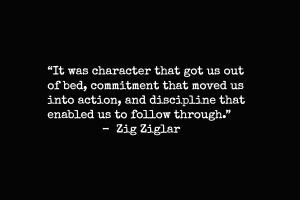 In perhaps an odd way, the years of writing helped with my marathon training. It required discipline. Showing up every day to do the work wasn’t a choice but something I had to do. Didn’t matter how I felt, or if it rained or if temperatures hit 40°C with humidity. I ran. It required courage. The temptation to quit a new challenge is strong in the beginning, especially when I
In perhaps an odd way, the years of writing helped with my marathon training. It required discipline. Showing up every day to do the work wasn’t a choice but something I had to do. Didn’t matter how I felt, or if it rained or if temperatures hit 40°C with humidity. I ran. It required courage. The temptation to quit a new challenge is strong in the beginning, especially when I